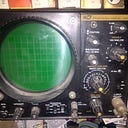I was in a meeting the other day at work and there was a great deal of discussion revolving around our creative department. In our case, the creative department consists of people who write scripts for radio and those who produce the audio for those scripts…whether that be commercials, color or funny bits, station IDs and so forth. Those leading the meeting were expounding on the fantastic work that had been done.
It made me think of recent projects we had done in the technical department, including one my boss designed and implemented. It involved an in-house made piece of circuitry and system integration that interfaced with the NAAD (National Alert Aggregation and Dissemination) system. It took the selected alerts that were incoming to our NAAD device in the racks and alerted the newsroom with audible alarms. It also dropped the incoming script data into our news software package so it was available almost instantly for on-air, and as a bit of icing on top automatically sent the jobs to the printer so they had hard copies without having to hit print. In addition, the audio log of the alert was emailed to a custom list of recipients so they could listen to it.
As a company, we seem to subscribe to that rather cliched idea of creativity being inexorably linked to what one might consider ‘traditional’ arts…writing/literature, music and theater creation and performance, and so forth. It has always bothered me that we categorize certain people or departments as ‘more creative’, or conversely intimating that those involved in the traditional creative arts areas somehow don’t work as hard as others.
To be balanced, I think the last twenty or thirty years have seen many changes in the attitudes towards what creativity is. The rapid rise in popularity of computer gaming has spurred along the idea that a great deal of creativity is involved in the design and implementation of something inexorably linked to logic, circuits, and mathematics.
Creativity to me involves new, original ideas or methods, and I don’t think the definition of the word should ever be restricted to one specific area of our culture or society, or to specific groups of people. Every individual is multi-faceted, every individual is more complex than we may think from a casual conversation or a ‘surface scan’ of the little bits and pieces of their life we may be aware of.
In a similar respect, creativity is no stranger to hard work — those who are involved in what we might consider those traditional arts fully embrace their share of blood, sweat, tears, false starts and mind numbing repetition before seeing their work bear fruit, if they do at all. Though we may not always think of it, creativity even in those traditional arts involves mathematics, and chemistry, and physics.
Creativity took place in the shop of my old neighbor when I was growing up on the farm, who could manufacture amazing things with a welder. As his farmhand in my teens, some of his devices saved me a lot of blood, sweat and tears.
Creativity takes place in the minds and computers of any number of programmers out there who design not just computer games, but accounting software and database solutions and the apps you use on your phone.
As I detail above, creativity lives in the mind of my boss, who is able to come up with innovative solutions to problems thrown at us with severe time constraints, and still make resulting hardware look like it was fabricated in a factory.
Creative lived in my father when he did carpentry on the side during his farming years, building decks and renovating kitchens and creating furniture.
It lives in mathematicians and biologists and physicists and every other area of science where people are trying to better understand the universe around us.
I don’t want to leave any group out, but I think you get the picture. I believe creativity of some sort lives in all of us, no matter what we may do for a living. I think it is latent in all of us, and we just need to find something we are passionate about and open our minds. People need to remember that creativity, hard work and logic aren’t and don’t need to be mutually exclusive. They can be and usually are complimentary.
